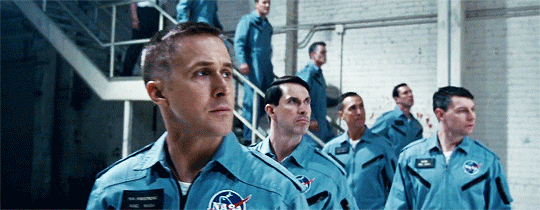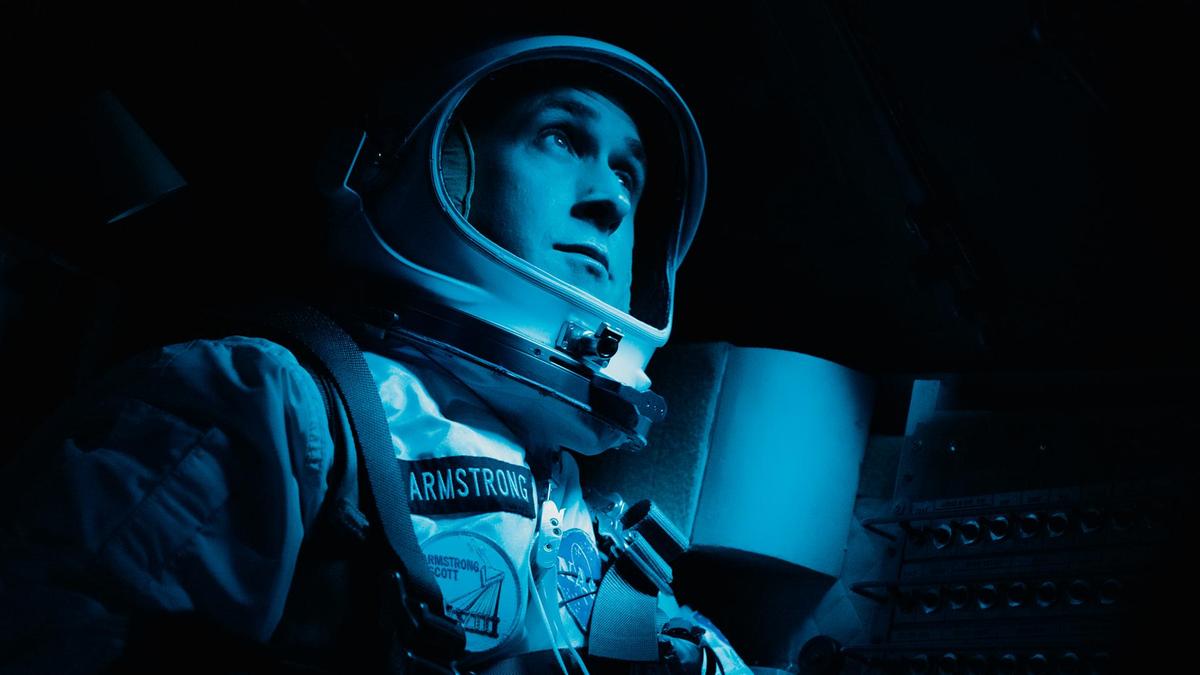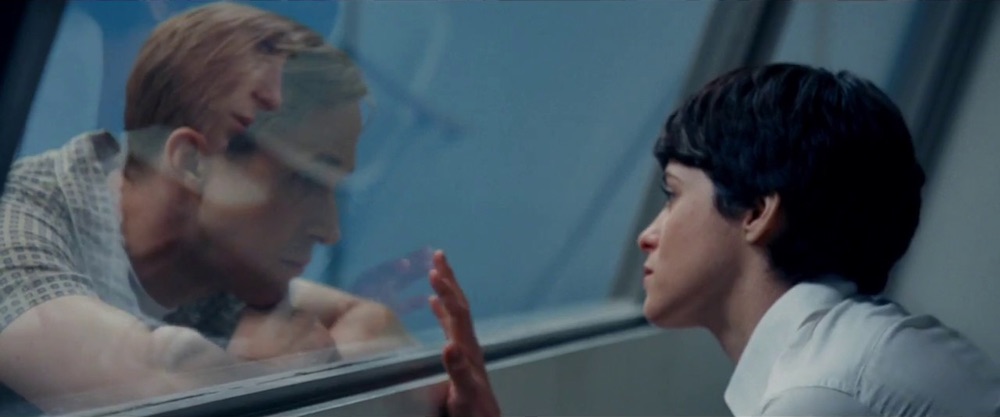Before I saw First Man, I was confused.
How could a movie about legendary American astronaut Neil Armstrong, directed by Oscar-winner Damien Chazelle from a script by Oscar-winning screenwriter Josh Singer, and starring the eminently likable Ryan Gosling and Claire Foy, be making such little noise at the box office?
After I saw First Man, I was even more confused, but for a different reason:
How could such a tense, gripping, and detailed look at mankind’s greatest achievement…
also feel so empty?
As I mulled it over, I realized: the emptiness is the point.
And while that’s a commendable storytelling risk for Chazelle and Singer to have taken, it may also explain why so few people are raving about this film as a must-see.
To understand why First Man feels oddly less than the sum of its parts, I think you have to appreciate the film’s three big elements that work so well individually, but which add up to create the cinematic equivalent of an unsolvable problem.
WARNING: Spoilers ahead for First Man, a true story that you already learned in school.
The Emotionless Protagonist
Neil Armstrong was a famously reticent man, which makes him a challenging hero to portray.
His crewmate Buzz Aldrin is well-known as NASA’s most outspoken astronaut, but Armstrong himself was a doer, not a talker. As the fim reveals, this was the case both at work and at home, where his wife Janet does all the emotional labor with their two sons that Neil simply doesn’t have the bandwidth for.
It’s hard to blame him. For one, his high-stress job doesn’t leave much room for error. For astronauts, a freewheeling approach to life could be fatal.
For another, there was a soberingly high degree of fatality among the astronauts. The men Neil was closest to in the program died in tragic accidents during training. When your own mortality is always one mistake away and the odds are astronomically stacked against you, you can’t really afford to let your guard down.

Business casual
Most importantly, from the film’s point of view, was the death of the Armstrongs’ young daughter Karen, which Neil never recovers from emotionally. (The only glimpses we ever see of a happy Neil are in flashbacks with Karen, or in stories that Janet tells about the funny, charming man that Neil used to be.)
Karen’s absence, and Neil’s refusal to discuss his feelings about her with anyone (including Janet) are a recurring theme throughout the film. It gives Singer and Chazelle the opportunity to tell the emotional arc of the film through the stories of Janet Armstrong, Ed White (Jason Clarke), and other secondary characters, a redirection tactic that works as well as it can.
Yet the wall that Gosling’s Armstrong puts up to keep even his own family at an emotional distance also winds up making him feel permanently distant to the audience as well — and this wreaks havoc with the film’s climax.
But before we can talk about that, we need to address a related problem:
The Film’s Midpoint Is the (Actual) Climax
Not literally, because that’s not how time works.
But in terms of cinematic tension, the nearly catastrophic Gemini 8 mission which precedes the Apollo 11 moon landing is First Man‘s real storytelling peak.
In a nutshell, the Gemini 8 mission starts off with a problem, which Neil solves… then the mission succeeds, and all is well… but just when you think you can relax, that’s when the whole situation goes absolutely white-knuckle haywire.
Chazelle has shrewdly set the stage for maximum drama in this scene.
He takes his time, giving the astronauts (and us) a full two minutes to linger in the cockpit before liftoff and stare at the creaking bolts and rivets that hold the Gemini 8 together — a tactile reminder that for all the mystique of “space exploration,” it’s really just grown kids defying physics and hurtling through outer space in the most lightweight and cost-efficient vessels they can get away with.
The scene also capitalizes on every major story beat we’ve seen before it, from the gut-punch tragedy of a prior mission failure to Armstrong’s previously Herculean attempts to stabilize a rogue aircraft before he blacks out. Knowing that Armstrong survives this mission doesn’t make watching him survive it any less harrowing, which is the highest praise I can give any movie that dramatizes questions we already know the answer to.
Which is why the film’s actual climax feels, to me, like a missed opportunity… and, again, that may be the whole point.
The Absence of Closure

Blue moon… you saw me standing alone…
What if you were the first man on the moon… and it didn’t matter?
Ultimately, that’s the question First Man (bravely? stubbornly?) refuses to answer.
First Man dramatizes the space race between the United States and the Soviet Union. But instead of presenting it as a battle over national pride and scientific supremacy (which was more the tone of Hidden Figures), First Man presents it more simply, as a group of men striving to do difficult jobs well.
“Men striving to do difficult jobs well” is also the subgenre that Damien Chazelle’s entire filmography seems to live within.
In La La Land, an aspiring musician and an aspiring actress forsake love to chase their artistic dreams. They succeed… but what do they lose in the process, and is the trade-off worth it? Ditto for Whiplash, which ends with the bullied student and the bullying teacher achieving a synthesis of mutual appreciation that could only be attained by surviving a self-inflicted hell… but what do they lose in the process, and is the trade-off worth it?
First Man asks a broader question: is doing something that no one else in history has ever done before — like winning the space race — worth it?
And if it is… how can we tell?
By the late 1960s, the American politicians and taxpayers were starting to wonder. The film includes newsreel footage from Veitnam protestors and person-on-the-street interviews where average Americans ask why their government is spending so much money to send a man to the moon when there are so many unmet needs here on Earth.
Armstrong’s own philosophy was that “mystery creates wonder, and wonder is the basis for man’s desire to understand.” It’s a poetic sentiment… and yet, the film doesn’t seem interested in finding wonder or understanding.
Instead, when Armstrong and Aldrin finally reach the moon, the film strangely deflates.
This is partly due to the mission’s reduced tension — which is an insane thing to say about the first time we sent three human beings 239,000 miles away to walk on the surface of the moon and then come back. But due to the film’s inherently epic depiction of the Gemini 8 near-disaster, the challenges faced by the Apollo 11 mission look incidental by comparison.
(It didn’t have to be this way. The Apollo 11 mission also almost ended in disaster, until Buzz Aldrin saved the day. But that scene was “cut for time,” and because it would shift the focus to Aldrin in the film’s final act, which wouldn’t create a clean narrative arc for Armstrong.)
Instead, we spend the film’s most iconic moments on the moon staring at our own reflection in Neil Armstrong’s visor, his expression hidden from us once again. Worse, the film’s ultimate moment of catharsis is filmed in such a way that it feels less like an emotional release and more like a dubious act of littering.
Afterward, when the mission returns home, the world greets the astronauts as heroes… but we’re not allowed to share in that joy because Armstrong won’t share in it either. Despite being the most famous man on Earth, he’s as taciturn as ever.
Is he happy? Proud? Relieved? Disappointed? Would he rather have stayed home with his family? We have no idea, because Gosling’s unwavering portrayal of Armstrong denies us any emotional release. He looks and behaves about the same as we’d expect him to if the mission had failed and he’d returned home one step short of the moon.
Win or lose, it all feels the same.
As a movie, First Man seems to question whether striving for any goal is ever worth it, only to conclude that it must be, since nothing ever matters more than doing your job well. As for why we do these jobs, and the price we pay along the way, that’s incidental. The only thing that matters is the work.
The problem with this outlook is that it makes success look a lot like failure when you can’t tell the emotional difference.

Liked This Post? You May Also Enjoy…
Steve Harrington, Jaime Lannister, and the Secret to Writing a Redemption Arc


0 Comments